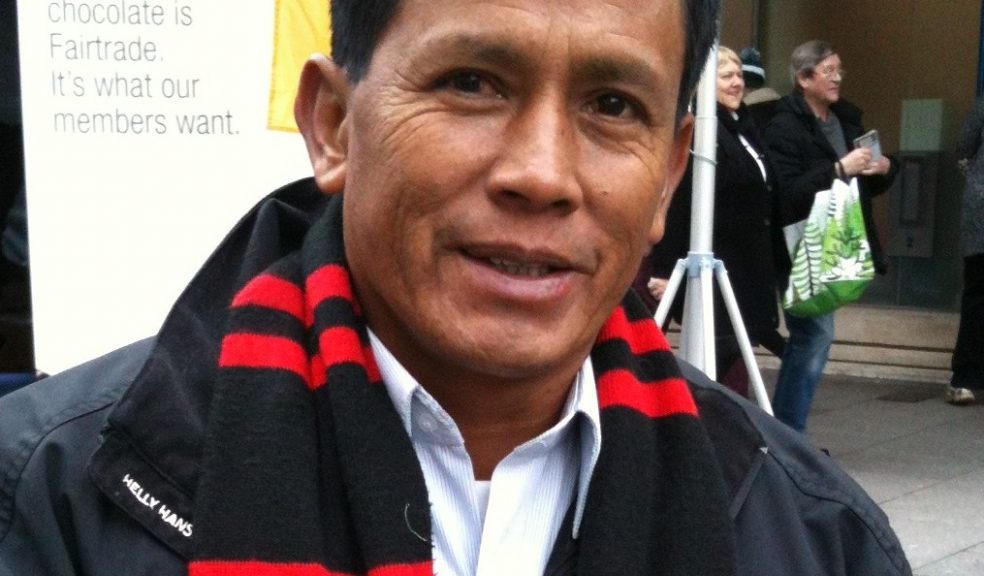
Green Action April Comment
Easter is the time for moving away from death to seek new life in unexpected ways and in unexpected places. In Christian terms, no longer is the love of God confined to the past but rather opens out to embrace the future. Yet there are ways in which the future can be found in the past.
Older cultures remind us of the importance of thinking in cycles. Time is not a linear concept but a repeated experience. This is, of course, the ongoing lesson of Nature and the message of calendars. What goes around comes around.
A few weeks ago I was privileged to meet and listen to two people from southern countries and their hopes at this time. Noah, from Zimbabwe, came as a Christian Aid partner participating in the ‘IF… campaign’*.
Speaking at the Big Bake-off at Exeter’s Cathedral, he recalled the times when his country was the bread basket of southern Africa. In recent decades its food production has been declining, partly because of too much industrialised agriculture. But now farmers are returning back to traditional methods of crop growing and yields are rising significantly.
The practice of using tractors has been disastrous – compacting the land, compressing vital microbes in the ground and causing massive soil erosion. Less intrusive forms of farming are now back on the agenda in an encouraging way.
Teaching from the past can point the way forward. The same message came from Oscar, a Peruvian fair-trade coffee and cocoa grower visiting Devon during Fair-trade Fortnight. Producers in his region of Pangoa are now reviving organic growing methods, working with natural processes and respecting ecological principles.
The benefits of his co-operative engaging in good quality fair trading and sustainable techniques is great news for both the community and the environment.
The lessons from both is that if humanity is to have a better long-term future, it has to be less dependent on high energy inputs and more engaging with the natural rhythms of life. In other words, a more fulfilling future will be a greener future.
This is not to say the advantages of modern technology will be discarded, but they will be more selectively employed, less influential and a balance of life on Earth may be restored.
In the end there is no economy without a living ecology, and we shall be judged by future generations not by the quantity of produce we consume but on the quality of life we pass on to future generations.
Maybe that is the core story of Easter, that death can be overcome by the sheer joy and vitality of hope...
*Over 150 organisations including Traidcraft, Christian Aid, Tearfund and Oxfam are giving their support to the Enough Food For Everyone IF campaign. All help us to write to our MP and to the Chancellor of Exchequer. But the strongest message we can send to politicians and companies is through the food we put on our own plates:
1. Enough Food For Everyone IF...we buy Fairtrade products
2. Enough Food For Everyone IF...we love leftovers and hate waste
3. Enough Food For Everyone IF...we choose food that keeps us healthy and helps the planet.
http://enoughfoodif.org/get-involved/food-your-plate
This article first appeared in Devon Churches Green Action News, April 2013




















